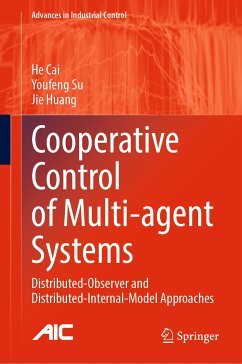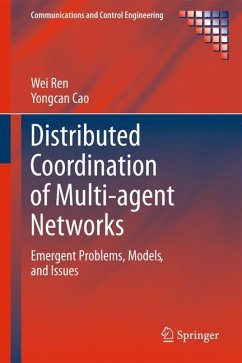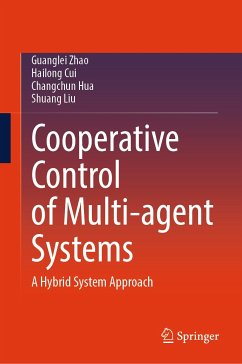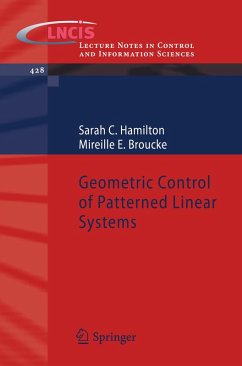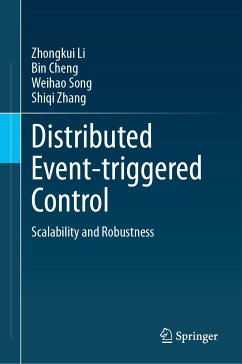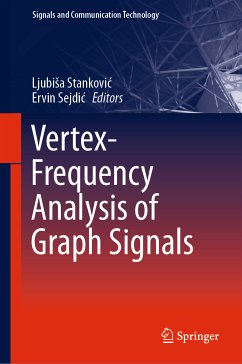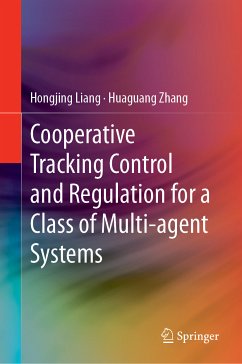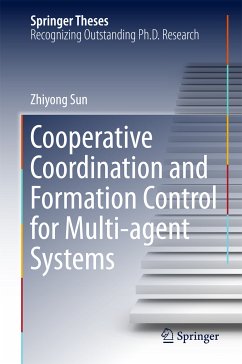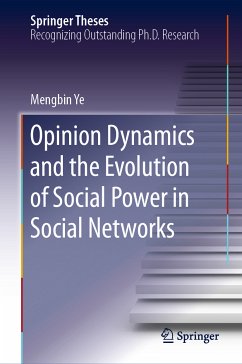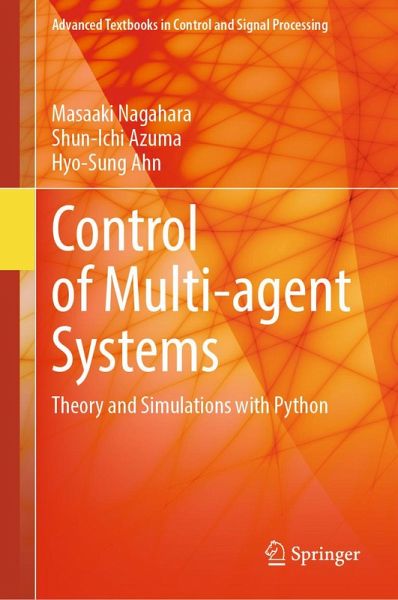
Control of Multi-agent Systems (eBook, PDF)
Theory and Simulations with Python
Versandkostenfrei!
Sofort per Download lieferbar
72,95 €
inkl. MwSt.
Weitere Ausgaben:

PAYBACK Punkte
36 °P sammeln!
This textbook teaches control theory for multi-agent systems. Readers will learn the basics of linear algebra and graph theory, which are then developed to describe and solve multi-agent control problems. The authors address important and fundamental problems including:. consensus control;. coverage control;. formation control;. distributed optimization; and. the viral spreading phenomenon.Students' understanding of the core theory for multi-agent control is enhanced through worked examples and programs in the popular Python language. End-of-chapter exercises are provided to help assess learni...
This textbook teaches control theory for multi-agent systems. Readers will learn the basics of linear algebra and graph theory, which are then developed to describe and solve multi-agent control problems. The authors address important and fundamental problems including:
. consensus control;
. coverage control;
. formation control;
. distributed optimization; and
. the viral spreading phenomenon.
Students' understanding of the core theory for multi-agent control is enhanced through worked examples and programs in the popular Python language. End-of-chapter exercises are provided to help assess learning progress. Instructors who adopt the book for their courses can download a solutions manual and the figures in the book for lecture slides. Additionally, the Python programs are available for download and can be used for experiments by students in advanced undergraduate or graduate courses based on this text.
The broad spectrum of applications relevant to this material includes the Internet of Things, cyber-physical systems, robot swarms, communications networks, smart grids, and truck platooning. Additionally, in the spheres of social science and public health, it applies to opinion dynamics and the spreading of viruses in social networks. Students interested in learning about such applications, or in pursuing further research in multi-agent systems from a theoretical perspective, will find much to gain from Control of Multi-agent Systems. Instructors wishing to teach the subject will also find it beneficial.
. consensus control;
. coverage control;
. formation control;
. distributed optimization; and
. the viral spreading phenomenon.
Students' understanding of the core theory for multi-agent control is enhanced through worked examples and programs in the popular Python language. End-of-chapter exercises are provided to help assess learning progress. Instructors who adopt the book for their courses can download a solutions manual and the figures in the book for lecture slides. Additionally, the Python programs are available for download and can be used for experiments by students in advanced undergraduate or graduate courses based on this text.
The broad spectrum of applications relevant to this material includes the Internet of Things, cyber-physical systems, robot swarms, communications networks, smart grids, and truck platooning. Additionally, in the spheres of social science and public health, it applies to opinion dynamics and the spreading of viruses in social networks. Students interested in learning about such applications, or in pursuing further research in multi-agent systems from a theoretical perspective, will find much to gain from Control of Multi-agent Systems. Instructors wishing to teach the subject will also find it beneficial.
Dieser Download kann aus rechtlichen Gründen nur mit Rechnungsadresse in A, B, BG, CY, CZ, D, DK, EW, E, FIN, F, GR, HR, H, IRL, I, LT, L, LR, M, NL, PL, P, R, S, SLO, SK ausgeliefert werden.
Alle Preise in Euro und inkl. der gesetzl. MwSt. | Innerhalb Deutschlands liefern wir preisgebundene Bücher versandkostenfrei. Weitere Informationen: bitte hier klicken
Support
Bitte wähle dein Anliegen aus:
Rechnungen
Bestellstatus
Retourenschein
Storno



